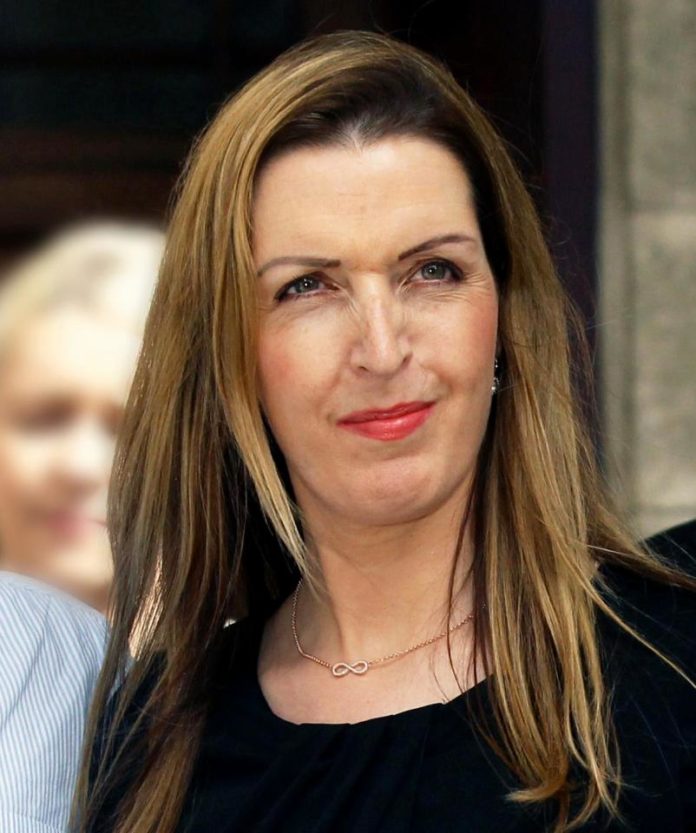
In faith we trust
We don’t know these people, don’t know anything about them, but due to their expertise, their unique qualities, their qualifications, we must submit ourselves to them wholly.
Of course, in an ideal world this wouldn’t be the case, in an ideal world we would rely on ourselves and ourselves alone. But we’ve already tried communism and it didn’t work. So, instead we rely upon elected officials to govern us, a police force to protect us, teachers to educate us, and so on.
And, for the most part, it works out fine. Sure, we often question the honesty of our politicians, their motives, and whether they really have our best interests at heart. And yes, An Garda Síochána are currently embroiled in a scandal which has rocked that entire system to its core. Come to think of it, the Department of Education haven’t exactly been looking after our teachers either.
But still, the point stands, save for the occasional, all-encompassing controversy which threatens to bring the country to its knees, our national services are fulfilling their tasks if not admirably, then certainly adequately.
However, the most important service of them all, the one which decrees the quality of all our lives, has been failing us for a while now. The interminable trolley crisis, the inexplicable waiting lists, and the sub-standard mental health services have become so ingrained in our psyches that we’ve come to accept them as the norm.
That shouldn’t be the case.
A country such as ours, a relatively wealthy one, shouldn’t treat its citizens so shoddily. And nor should it withhold information from them, information which could mean the difference between life and death.

But most of all I’ve struggled, I’ve really struggled, to come to terms with how vigorously the HSE contested Ms Phelan’s claims, how it dragged her, a gravely ill woman, through the courts in a desperate attempt to prevent this story becoming public knowledge.
That it is public knowledge, that the 162 women and their families who have yet to be informed whether they received false negative test results will now do so, is solely down to Ms Phelan’s bravery. Opting not to take the easy route, refusing to accept the hush money, she fought a battle which no person in her situation should have to endure, having both her integrity and her life expectancy questioned by a body representing the State and its interests.
The HSE has been swift to distance itself from those legal battles of course, shifting the blame to the agency responsible for its legal affairs, and then lapsing back into silence as it continues its search for a fall guy.
There’s already been one fall guy, or a fall gal as was the case. Dr Gráinne Flannelly, the former Clinical Director of the National Cervical Cancer Screening Programme, has resigned from her role having admitted that she advised a Limerick gynaecologist to file erroneous results rather than inform those affected.
And while some may argue that Dr Flannelly has gotten off lightly, that, in light of her actions, criminal charges should be forthcoming, her part in this national scandal is likely to be quickly forgotten.
Because everything we’ve seen so far suggests that this runs deep, and, with an inquiry on the way, we may not even have reached the tip of the iceberg yet.

Yet this is not really the time for anger, for rage.
It’s natural to seek retribution, to demand justice, but the modern-day mob mentality has no place here. For an example of how to behave one need only look at Vicky Phelan herself; caught up in the maelstrom, she has retained her dignity, displaying enormous grace under pressure while those who fought to silence her scramble for a way out.
And having sacrificed so much so that others in her situation wouldn’t suffer like she has, the focus now turns to these, as yet, unnamed women; those who have already received their phone call and those who will receive them in the coming days.
Because while Ms Phelan’s story has sundered our hearts in two, there will now be a slew of similar stories, of women whose lives have been turned upside down by the callous behaviour of those tasked with looking after their health.
Already we know that 17 of the women affected by this withholding of information have since passed away. The cause of death in those instances has not yet been discovered, but it’s possible that at least one died from cervical cancer, and that her death may have been prevented if she, or her doctor, had been furnished with all additional information as soon as the audit had been carried out.
It doesn’t even end there. A hotline set up to deal with queries from women concerned about their test results had received six thousand calls by the start of this week. Surgeries the length and breadth of the country have been fielding similar calls all week. People are panicking, and why wouldn’t they? I know I would.
Simon Harris’ solution has been to offer free smear tests to all women between the ages of 25 and 60, feeding them back into a system that has already failed them, overburdening small practices and expecting them to operate as per usual.
And when those women visit their GP, their gynaecologist, they will do so reluctantly, with an air of trepidation. Because that trust is no longer there. It has been broken, not by those on the frontline, but by those in the offices and hallways of power, those who chose to play Russian roulette with the lives of strangers rather than admit their mistakes.
Without that trust, these women find themselves in a most horrific of situations, where it’s nigh on impossible to accept what their doctors tell them in good faith, where they must question everything, ask that it be double-checked, lest their negative test be the one which slipped through the net. Where they must live in a permanent state of unease and wonder if the all-clear means just that, or whether it means something else entirely.
Newsflash: sex, like trust, must be earned

That it wasn’t offers no relief to those ruthlessly mown down by Alek Minassian, but it does at least suggest that this was an isolated incident, the actions of a lone madman rather than an organised gang.
But what motivated those actions?
A post authored by Minassian just minutes before the attack may provide the answer. Referencing the “Incel Rebellion”, the 25-year-old paid tribute to fellow mass murderer, Elliot Rodger, and promised to “overthrow all the Chads and Stacys”. In the process he shone a light into a strange, hidden part of the Internet which many of us didn’t know existed.
So, first things first: what’s an Incel?
Apparently, it stands for ‘involuntary celibate’ and is a term used by men who feel that women are unfairly denying them the chance to engage in sexual relationships. Elliot Rodger was a dyed-in-the-wool incel and a staunch misogynist who blamed all women for the fact he was still a virgin at the age of 22. Chads are sexually prolific men and Stacys are all those terrible women who refuse to have sex with incels.
Thus, the incel rebellion is an uprising of socially inept men, lads who got turned down a couple of times by women and, rather than dust themselves down and get back out there, decided to blame the world for their problems; incapable of handling rejection they formed a little gang, a ‘we hate girls’ gang, and spent their evenings fantasising about revenge and retribution.
If one of their number hadn’t just killed ten people, the whole thing would be laughable. But no, we now have to keep an eye out for lonely bachelors as well as everything else.



